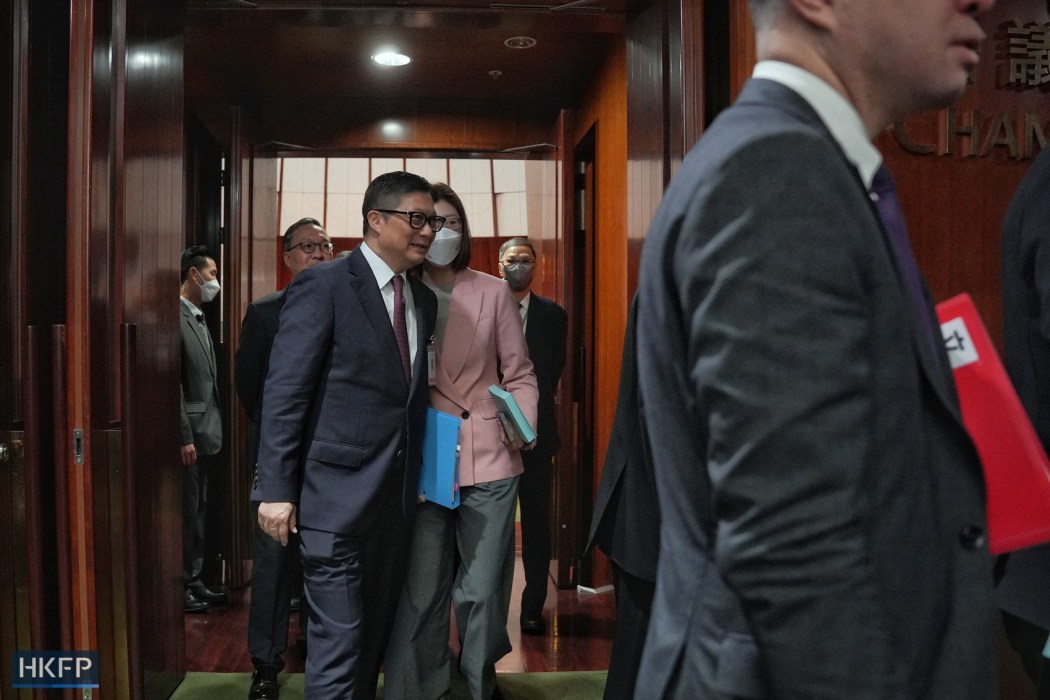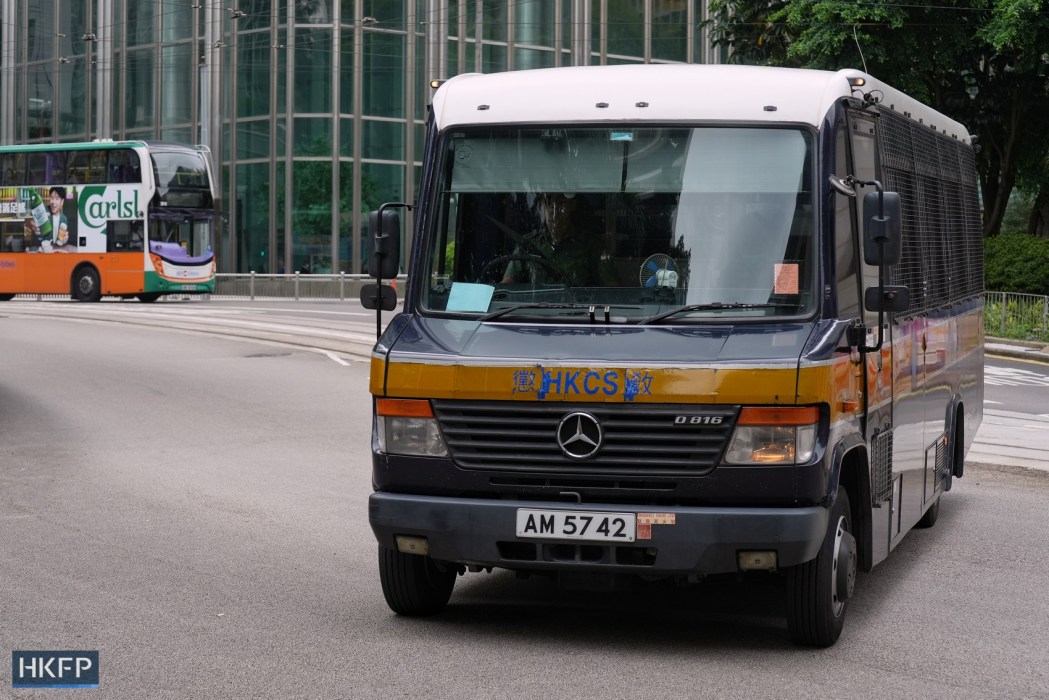Hong Kong’s existing early release schemes for prisoners may not apply to those who are serving time behind bars for an offence endangering national security, the draft of a new bill presented to the city’s legislature has revealed.

A national security prisoner may not be considered for an early release unless the corrections chief was satisfied that their parole would not “be contrary to the interest of national security,” the bill drafted under Article 23 of the Basic Law read.
If the draft bill passes Hong Kong’s opposition-free legislature, the threshold for early release of inmates convicted of endangering national security will apply “whether the sentence of the prisoner… was imposed before, on or after the commencement of” the security law.
Article 23 of the Basic Law stipulates that the government shall enact laws on its own to prohibit acts of treason, secession, sedition and subversion against Beijing. Its legislation failed in 2003 following mass protests and it remained taboo until after the onset of the separate, Beijing-imposed security law in 2020. Pro-democracy advocates fear it could have a negative effect on civil liberties but the authorities say there is a constitutional duty to ratify it.
According to the bill tabled at the legislature on Friday, the commissioner of correctional services must not refer the prisoner to the government-appointed Release under Supervision Board, unless they believed that releasing the prisoner early would not jeopardise national security.
At present, prisoners in Hong Kong may seek early release under the Release under Supervision Scheme and the Pre-release Employment Scheme.
The former programme allows an inmate who is serving a jail term of three years or more to apply for early release if he or she has served at least half or 20 months of their sentence. The prisoner may file the application six months before the earliest date on which they may be released under the scheme.

A supervision order would be imposed on those who were released early, until the day their full term ended.
The scheme was helpful to prisoners who had been “reformed” during their incarceration, but required assistance and guidance in adjusting to normal life following a long period of imprisonment, according to the Security Bureau website.
During the supervision period, the released individual is required to report to their supervising officer monthly and reside at an approved address. The individual may only undertake jobs authorised by the officer and any changes relating to their employment or residence must be reported within three days.
If the individual wants to leave Hong Kong or move abroad, they must seek instructions from the officer at least one week before. Without the officer’s approval, the released person shall refrain from associating with people with a criminal record, or those who have a connection with the offence they were convicted of.
The released individuals should also avoid visiting places linked to the offence they were convicted of and maintain good behaviour, the supervision order document read.

Prisoners serving a jail term of two years or above and who are within six months of their earliest date of discharge may pursue the Pre-release Employment Scheme. They can apply within 12 months from the earliest date of their release.
They are also subject to a list of supervision conditions, with an additional requirement of living in a hostel managed by the Correctional Services Department. They have to report to their approved workplace at a designated time and go back to the residence as soon as work ends. They also need to pay for their stay.
Under the proposed legislation, if the corrections chief decides not to refer the security law prisoner for early release consideration, the commissioner must review their decision annually.
Last month, Commissioner of Correctional Services Wong Kwok-hing said Hong Kong authorities were considering amending the law to bar prisoners who have been granted early release from leaving the city.

His comments came after pro-independence activist Tony Chung, who had been granted an early release from his national security jail term, left the city for the UK in December. Authorities have ordered the activist to return to prison, citing a breach of his post-prison supervision order.
The bill released on Friday did not mention any legislative amendment to bar released individuals from travelling.
Beijing inserted national security legislation directly into Hong Kong’s mini-constitution in June 2020 following a year of pro-democracy protests and unrest. It criminalised subversion, secession, collusion with foreign forces and terrorist acts – broadly defined to include disruption to transport and other infrastructure. The move gave police sweeping new powers and led to hundreds of arrests amid new legal precedents, while dozens of civil society groups disappeared. The authorities say it restored stability and peace to the city, rejecting criticism from trade partners, the UN and NGOs.
Article 23 security law bill in full:
- Hong Kong proposes dissolving organisations accused of ‘external interference’
- Threshold for early release may be raised for national security prisoners, draft bill says
- Hong Kong proposes life sentences for treason, insurrection, sabotage
- New powers mulled for police, courts to limit nat. security detainees’ access to lawyers
- Hong Kong proposes cancelling ‘absconders’ passports under new security law
- Public interest defence proposed for some ‘state secrets’ offences in draft security law
- Hong Kong proposes raising max. penalty for sedition to 10 years under new sec. law
- Courts could extend detention without charge for 2 weeks, draft nat. sec. bill suggests
- Hongkongers may face 7 years jail for ‘inciting disaffection’ of public officers
- Hong Kong’s business community expresses concern over proposed new security law
Support HKFP | Policies & Ethics | Error/typo? | Contact Us | Newsletter | Transparency & Annual Report | Apps
Help safeguard press freedom & keep HKFP free for all readers by supporting our team























